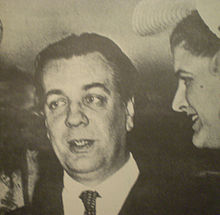“Borges” redirects here. For other uses, see Borges (disambiguation).
Jorge Francisco Isidoro Luis Borges Acevedo (24 August 1899 – 14 June 1986), known as Jorge Luis Borges (Spanish pronunciation: [ˈxorxe ˈlwis ˈβorxes]), was an Argentine short-story writer, essayist, poet and translator born in Buenos Aires. His work embraces the “character of unreality in all literature”.[2] His most famous books, Ficciones (1944) and The Aleph (1949), are compilations of short stories interconnected by common themes such as dreams, labyrinths, libraries, mirrors, animals, fictional writers, religion and God. His works have contributed to the genre of science fiction as well as the genre of magic realism, a genre that reacted against the realism/naturalism of the nineteenth century.[3][4][5] In fact, critic Angel Flores, the first to use the term, set the beginning of this movement with Borges’s Historia universal de la infamia (A Universal History of Infamy) (1935).[6] Scholars have also suggested that Borges’s progressive blindness helped him to create innovative literary symbols through imagination.[7] His late poems dialogue with such cultural figures as Spinoza, Camões, and Virgil.
In 1914 his family moved to Switzerland where…

Continue lendo em http://dictionary.sensagent.com/Jorge_Luis_Borges/en-en/


